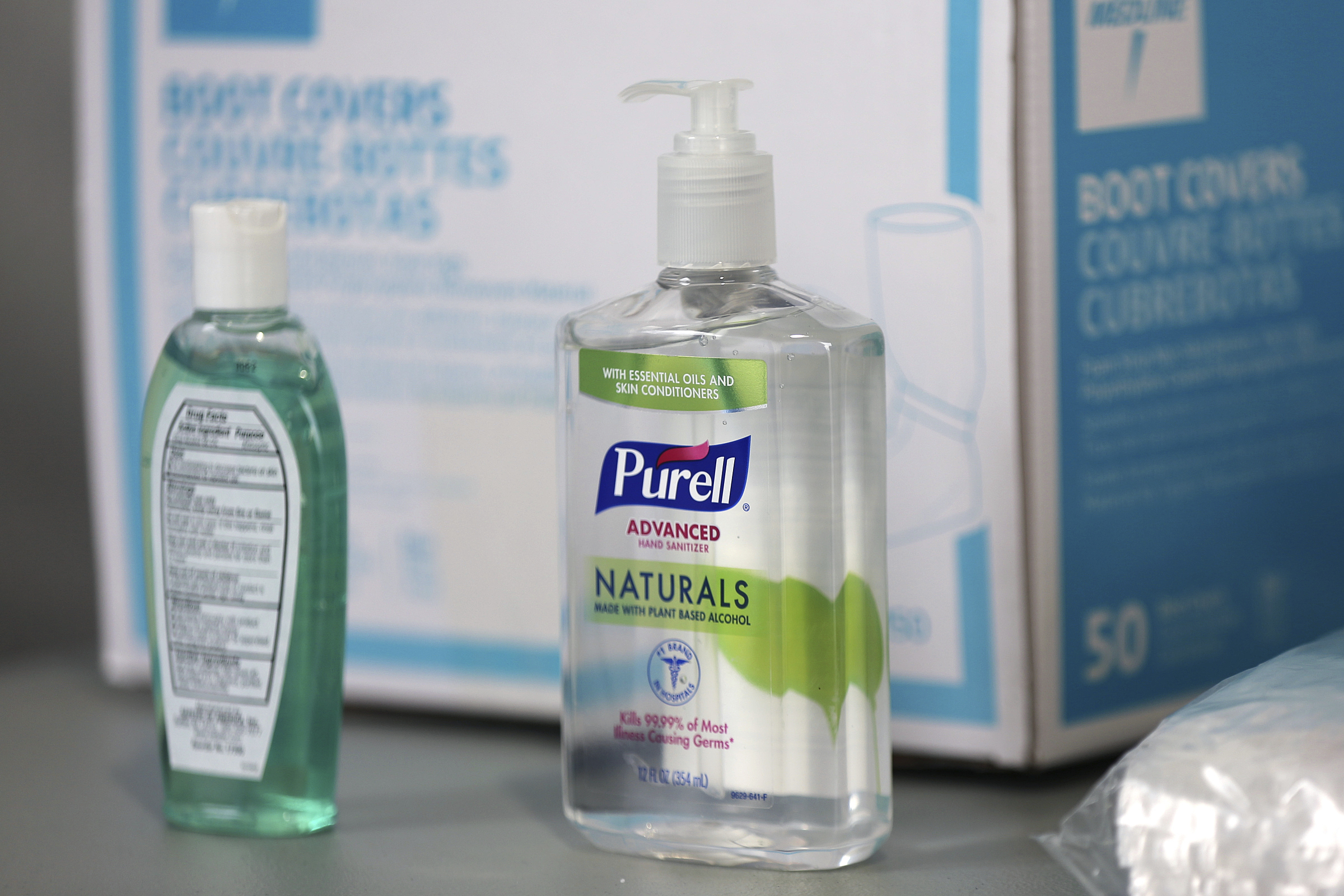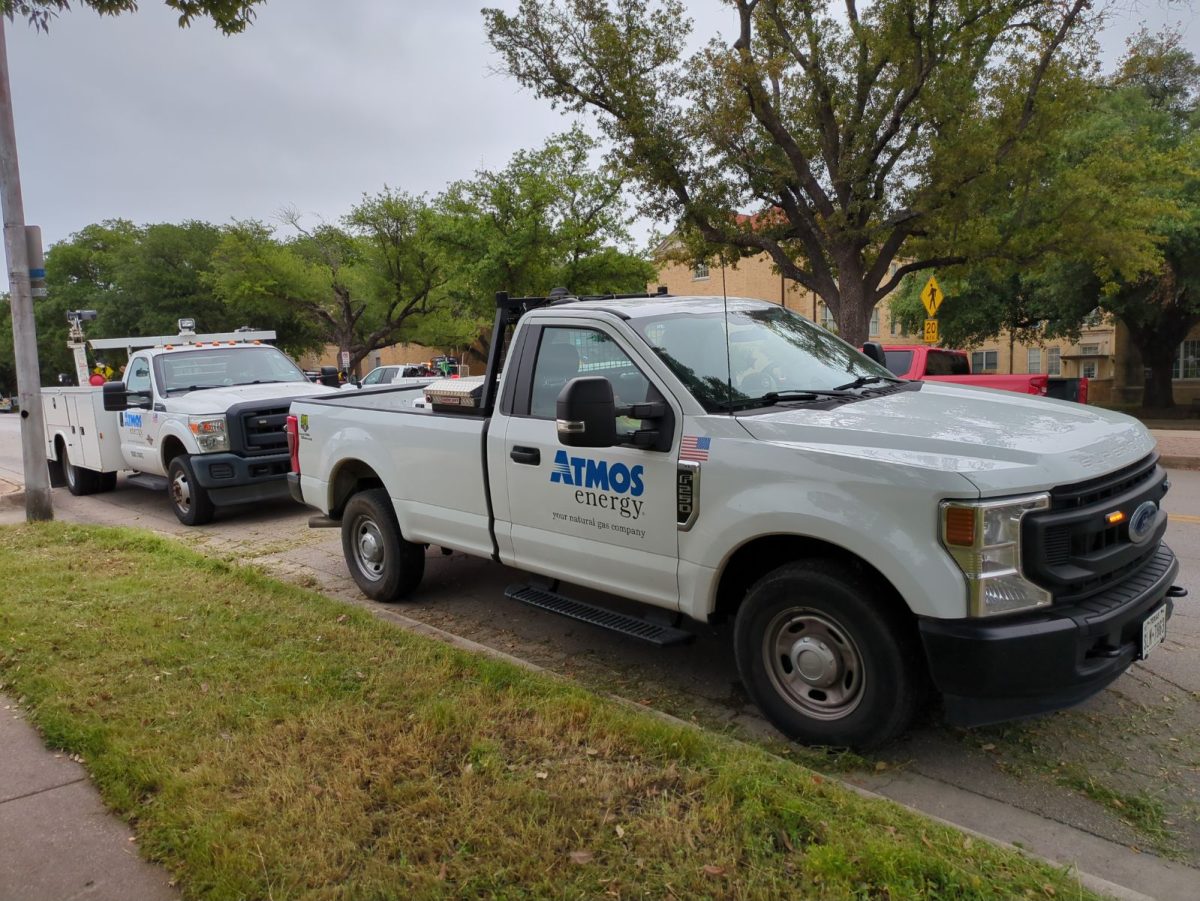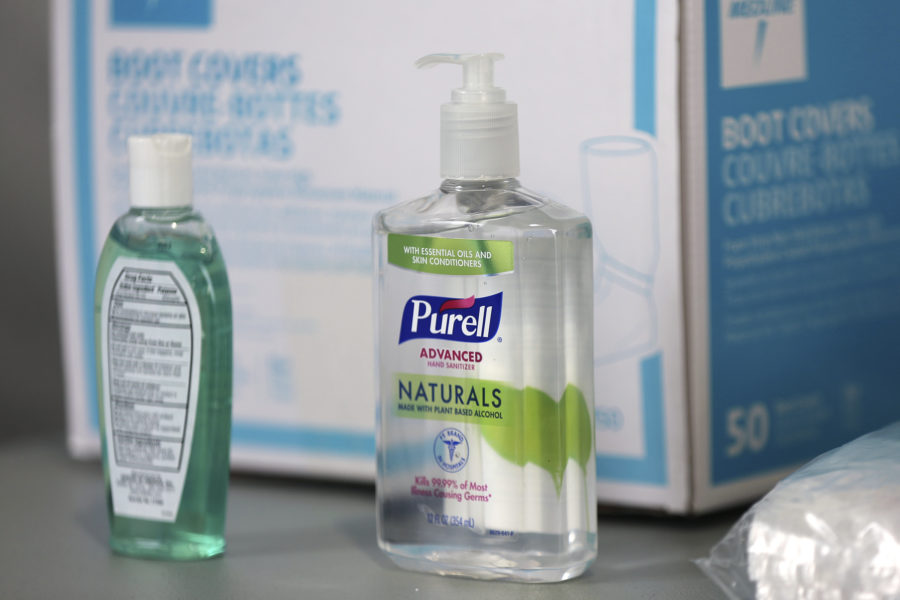Panic buying during the COVID-19 pandemic has stripped grocery store shelves of cleaning supplies, toilet paper and hand sanitizer.
While consumers are forced to wait a while before most of these items are restocked, hand sanitizer is bringing out the DIY in some people.
Experts urge caution, though, because the chemicals involved can burn.

Hand sanitizer is pictured in the swabbing tent before the city’s coronavirus testing site opened next to Citizens Bank Park in South Philadelphia (Tim Tai/The Philadelphia Inquirer via AP)
Jeffery Coffer, professor of inorganic and materials chemistry in the College of Science and Engineering, said people must consider the purity or source of the aloe vera and rubbing alcohol (isopropanol) they use and make sure they mix the proper amounts of both.
“Accidental mixtures of these ingredients in these homemade hand sanitizers could be the cause of the burning,” Coffer said.
A Collin County parent, who asked to keep her identity private, explained how she made homemade hand sanitizers for her children at home.
“With all of the ‘shelter-in-place’ orders and every store I go to being out of sanitizers, it just made sense for me to make homemade sanitizers to protect my household,” she said.
The CDC recommends that people should wash their hands with soap and water whenever possible and that alcohol-based hand sanitizers only “reduce the number of microbes on hands in some situations.”
“After a few days, I noticed that my kids kept saying their hands were starting to burn after using homemade sanitizers, so that’s when I knew it was best to stick to just washing hands,” she said.
Although when soap and water are not available, CDC recommends that people use alcohol-based hand sanitizers that contain at least 60 percent of alcohol.
Giridhar Akkaraju, a biology professor in the Science of College and Engineering, said he and his wife created homemade hand sanitizer when they are not able to wash their hands.
“We mixed aloe vera and rubbing alcohol (isopropanol) because alcohol destroys the virus’ coat, known as the envelope,” said Akkaraju.
Studies have found that sanitizers with an alcohol concentration between 60-95% are more effective at killing germs than non-alcohol based hand sanitizers, according to the CDC.
“If we weren’t in a pandemic, then washing hands excessively is probably not necessary. In fact, excessive washing of hands probably removes “good” bacteria and creates space for “bad” bacteria that can cause disease,” said Akkraju.





